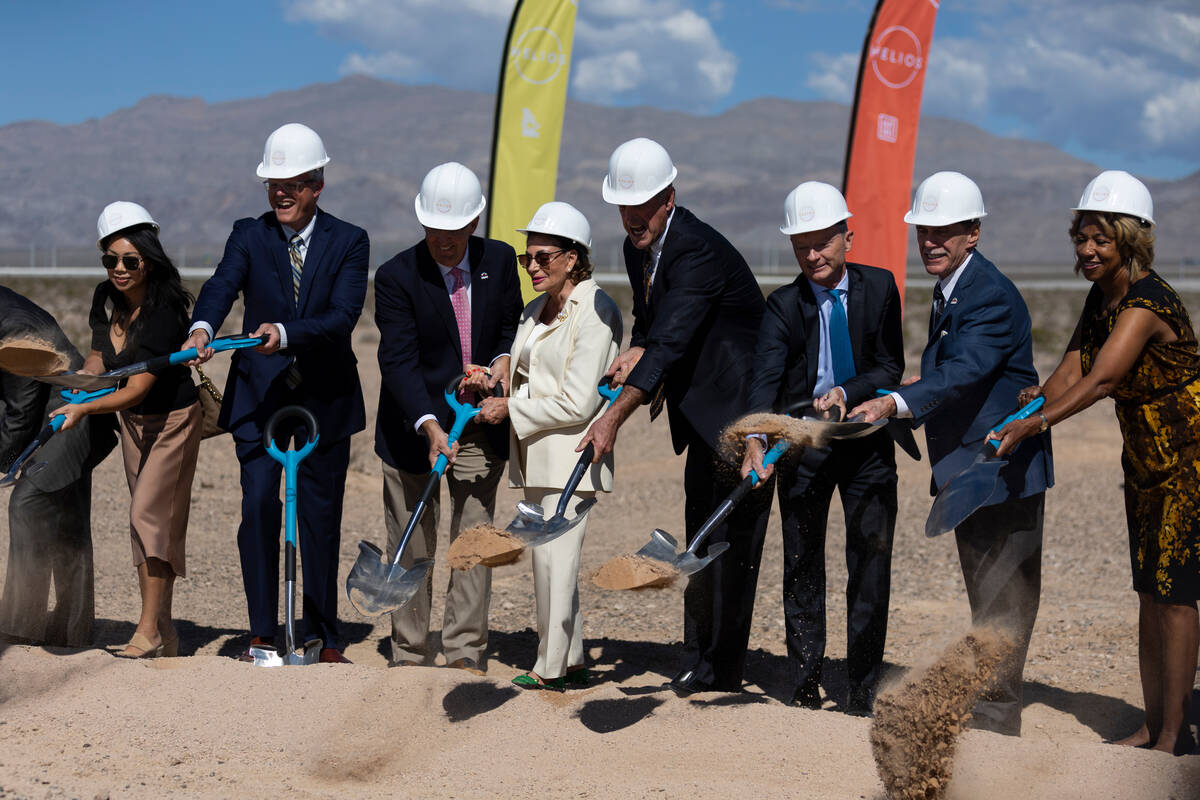EDITORIAL: Lessons from North Las Vegas’ land buyback
Mistakes are often the best teachers. There are plenty of lessons to learn from North Las Vegas’ recent land deal.
Last month, North Las Vegas bought back 135 acres that it sold to Pacific Group in 2022. The developer bought the land, on the southwest corner of the 215 Beltway and North Pecos Road, for around $37 million. The city sold the land conditionally. A $5 billion investment was supposed to build a hospital and medical hub supplemented with office buildings, restaurants and retail space. In theory, the Helios project would have created more than 10,000 jobs.
But it didn’t happen. Pacific Group never built anything on the land, let alone a full-scale medical village. North Las Vegas bought back the land for nearly $53 million, a hefty premium over what it paid for it.
On the surface, that looks like rewarding failure. But the city’s repurchase agreement required it to cover ] costs Pacific Group incurred. That included things such as drainage surveys, traffic studies and finance costs.
If the land were still worth $37 million, that would be a bad deal. But a February appraisal put the land’s current value north of $60 million. The land currently has use restrictions that prevent residential development. If those were removed, its value would be $71 million.
Here are some lessons. First, land-use restrictions lower property values. In this case, the limitations came from the federal government, which transferred this land to North Las Vegas. The federal government controls enough land in Nevada. It should remove these restrictions and transfer more land to the state and city governments. But local governments impose zoning restrictions, too. Some of those make sense, but in other cases, they artificially limit the utility and value of private property.
Second, be wary of politicians touting economic development projects. North Las Vegas officials earned substantial media coverage when they held a groundbreaking at the site. They received de facto credit for a project that didn’t come to fruition. Be especially leery when such pronouncements depend on taxpayer subsidies.
Third, it pays to be proactive. In private enterprise, profit motivates companies to cut failing projects. That incentive doesn’t exist in the public sector. It’s one reason bureaucracies tend to be inefficient and risk averse. That isn’t the case here. Pacific Group didn’t live up to its commitments, and North Las Vegas took action.
The city still has to find a willing partner and may need to revise its expectations, but North Las Vegas is moving this project forward. And the next developer now knows it won’t be able to drag its feet.






















